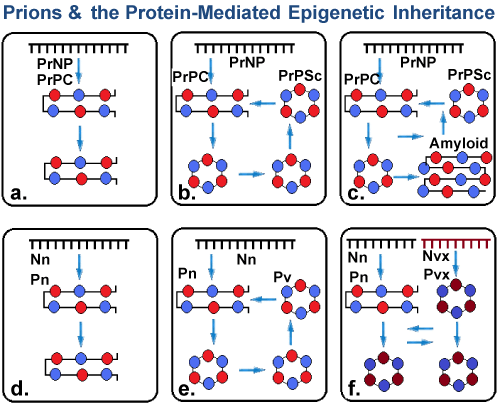
 |
| Figure 3: Prions and protein-mediated epigenetic inheritance. Prion protein (PrPC) is normally present in nerve cells and encoded by the PrNP gene (a). An abnormally-folded variant (PrPSc) appears in the cells under pathological conditions. PrPSc acts as chaperon and refolds even normal PrPC molecules into PrPSc (b). It also aggregates into amyloid, which forms undegradable deposits, degenerates and kills the cells (c). However there are examples where a differently folded variant (Pv) of a naturally-occurring protein (Pn, encoded by the Nn gene) is beneficial for cells (d, e) and the Pn>Pv conversion provides survival advantages to the host cells; Pv is transferred not “genetically” by a separate gene, but “epigenetically” by the protein itself. It is theorized that, after several generations, mutation and natural selection might provide a genetically inherited variant (Pvx) of Pv (encoded by the Pvx gene), which replaces the original Pv and its functions (f). |